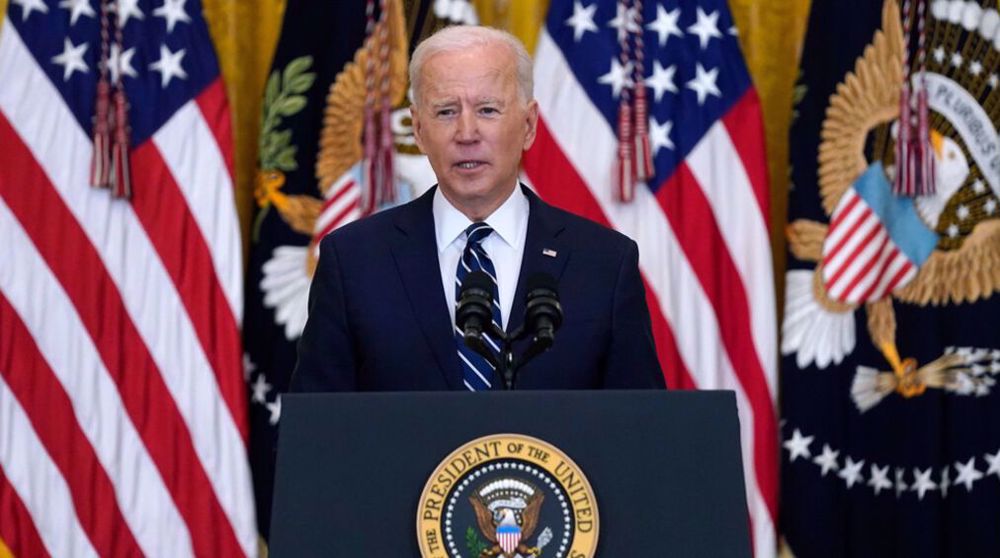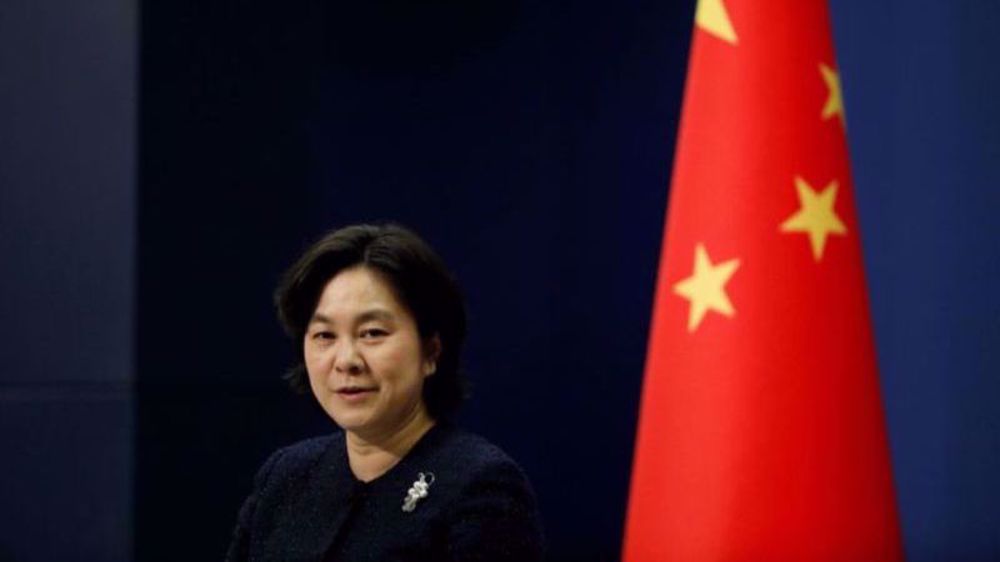US-China rivalry risks 'catastrophic' conflict, Kissinger warns
Former US Secretary of State Henry Kissinger has warned that the United States and China must come to an understanding on international affairs or there will be a risk of "catastrophic" conflict similar to the one before the First World War.
Speaking online at a Chatham House event in London, Kissinger said "endless" competition between the world's two largest economies risks unforeseen escalation and subsequent conflict, and that the ultimate question was whether or not the United States and its Western allies could develop an understanding with China about a new global order.
“If we don’t get to that point and if we don’t get to an understanding with China on that point then we will be in a pre-World War One-type situation in Europe, in which there are perennial conflicts that get solved on an immediate basis but one of them gets out of control at some point,” he said.
“It is infinitely more dangerous now than it was then,” Kissinger added, stressing that the high-tech weaponry on both sides could lead to a very grave conflict.
"A conflict between countries possessing high technology with weapons that can target themselves and that can start the conflict by themselves without some agreement of some kind of restraint cannot end well," the former US diplomat said. "And that's an understatement."
Kissenger served as Secretary of State and National Security Advisor under President Richard Nixon, making two trips to China in 1971, the first of which was in secret, to establish rapprochement between Washington and Beijing.
Kissinger met Chinese officials on behalf of Nixon at that time without telling George H.W. Bush, who was then Washington’s ambassador to the United Nations, about the talks.
The US and China have been engaged in a trade conflict for the past two years and have imposed billions of dollars of tariffs on each other’s goods.
Since early 2018, the US administration has pursued a deliberate policy of attempting to hurt China’s economy in response to concerns about the shifting balance of economic power and unfair trade practices.
Washington and Beijing are also engaged in a number of other disputes, including US naval operations in the South China Sea, the US relationship with Taiwan, the Xinjiang issue and US Congress support for protesters in Hong Kong.
Time to end US ‘drama’ over Xinjiang rumors: Chinese FM
Citing an admission by a former US senior official, Chinese Foreign Ministry spokesperson Hua Chunying said on Friday that allegations of human rights violations against the Muslim Uighur minority in the western state of Xinjiang was nothing but a strategic US plot to destabilize China from the inside.
Hua made the comments after showing journalists at the ministry’s regular press conference a video of Lawrence Wilkerson, a retired US Army Colonel and former chief of staff to US Secretary of State Colin Powell, giving a speech in August 2018.
The video showed Wilkerson saying if the CIA wanted to destabilize China, that would be best to form unrest and join with Uighurs in putting pressure on China internally rather than from outside.
“It’s time to end the ‘drama’ from the US side,” Hua said, adding that the footage showed the unseemly role played by the US and some of its allies and a few media outlets when they attack China on the issue of Uighurs in Xinjiang.
The Chinese Foreign Ministry spokesperson also said the US and its western allies colluded with anti-China forces and accused Beijing of committing "crimes" including forced labor, forced sterilization and even genocide and subsequently imposed sanctions on Chinese institutions and personnel.
The official also underlined that the US cooked up the so-called “Xinjiang problem” not because it cares about the Muslim Uighur minority but to undermine China’s security and stability, and to hinder its development and growth.
Western governments have alleged that at least one million Uighur Muslims have been forced into camps in the autonomous Xinjiang region.
Beijing vehemently denies reports that Uighurs are unfairly treated and says it is addressing underdevelopment and a lack of jobs in heavily Uighur areas such as Xinjiang.
Chinese officials have also characterized the camps as “vocational education and employment training centers” for “criminals involved in minor offenses.”
Last month, the administration of US President Joe Biden endorsed a last-minute declaration by the administration of ex-president Donald Trump that accused China of committing “genocide” in Xinjiang.
The mostly Muslim-Turkic ethnic group of Uighurs, which makes up about 45 percent of the population in Xinjiang, has long accused the government in Beijing of cultural, religious, and economic discrimination.
China rejects the allegation and, in turn, accuses what it describes as exiled separatist groups of planning attacks in the resource-rich Xinjiang, which is strategically located on the borders of Central Asia.
US fears China is flirting with seizing control of Taiwan
In another development on Friday, a senior US official told the Financial Times that Washington was concerned about China flirting with the idea of seizing control of Taiwan.
“China appears to be moving from a period of being content with the status quo over Taiwan to a period in which they are more impatient and more prepared to test the limits and flirt with the idea of unification,” the official said.
The official stressed that the Biden administration had reached the conclusion after assessing the Chinese behavior during the past two months.
“As we prepare for a period in which Xi Jinping will likely be entering his third term, there’s concern that he sees capstone progress on Taiwan as important to his legitimacy and legacy,” the official said. “It seems that he is prepared to take more risks.”
The Chinese military flew 20 warplanes into Taiwan’s air defense zone on Friday after the US and Taiwan agreed to boost co-operation between their coast guards.
Taiwan’s defence ministry said in a statement that some of the Chinese aircraft flew in the airspace to the south of Taiwan and passed through the Bashi Channel which separates the island from the Philippines.
A person familiar with Taiwan’s security planning told Reuters the Chinese military was conducting exercises that would simulate an operation against US warships that sail through the Bashi Channel.
Almost all countries around the world recognize China's sovereignty over Taiwan, but Washington has undermined China's sovereignty over the past years and stepped up arms and military support for Taiwan.
The Chinese government has sternly warned Taiwan over its secessionist activities, saying “independence means war” and that Taiwan is an inseparable part of China.
Hamas thanks Iran, Resistance Front following achievement of ceasefire in Gaza
'Capitulation': Israeli officials and media concede Gaza defeat as truce unfolds
'Gaza has won': Social media users react to ceasefire with mix of relief, joy
Iran seeks South Korea’s assistance for AI, fiber-optic projects
VIDEO | Iran's 'Eqtedar' (Power) maneuver
Israel hits HTS military target in Syria for 1st time since fall of Assad
VIDEO | Press TV's news headlines
Israel has slaughtered 13,000 students in Gaza, West Bank



















 This makes it easy to access the Press TV website
This makes it easy to access the Press TV website